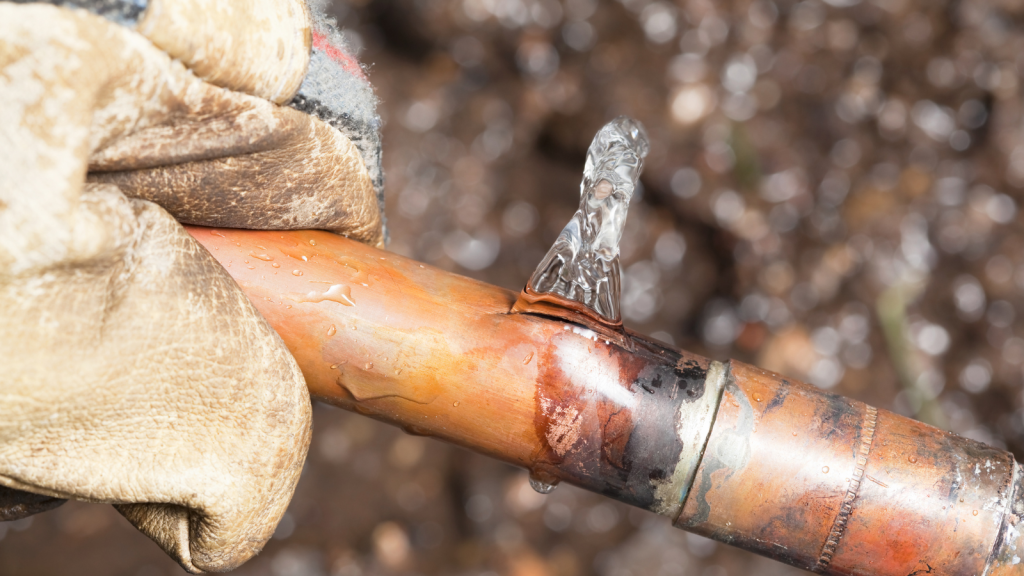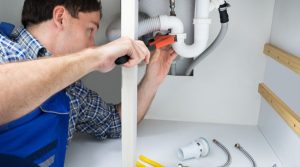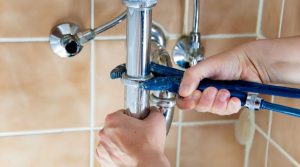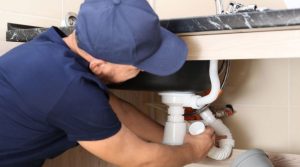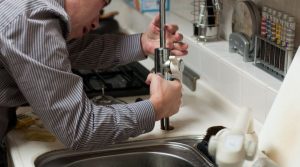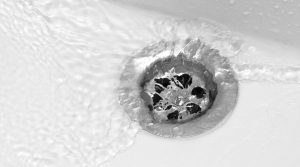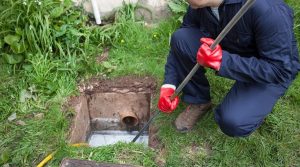Your property could suffer costly damage from frozen pipes, especially during the colder months. Preventing frozen pipes is crucial for protecting your plumbing and avoiding expensive repairs. Fortunately, with the right precautions, you can safeguard your pipes all winter long.
Key Takeaways:
- Insulate pipes: Focus on exposed pipes in unheated areas like basements, garages, and attics.
- Maintain warm indoor temperatures: Keep your thermostat consistent, even when you’re away.
- Allow faucets to drip: A small water flow can prevent freezing.
- Seal leaks: Close gaps around pipes to reduce cold air infiltration.
- Install heating cables: Use heat tape or cables on vulnerable pipes for extra protection.
Get your plumbing issues resolved fast! Contact BJC Jersey City Plumbers today for affordable, 24/7 service in Jersey City
Why Is It Important to Prevent Frozen Pipes in Winter?
When water freezes inside pipes, it expands, potentially causing cracks or even pipe bursts. This can disrupt your water supply and lead to significant water damage in your home. Preventing frozen pipes is about more than just avoiding inconvenience—it’s about protecting your home from thousands of dollars in damage. By understanding the risks and taking preventive measures, you can save yourself from a lot of stress and expense.
How to Keep Your Pipes from Freezing in the Winter
To prevent your pipes from freezing, it’s important to maintain a consistently warm environment in your home and properly insulate your plumbing system. The goal is to keep cold air away from the pipes and ensure water keeps flowing to avoid ice buildup.
5 Tips to Prevent Pipe Freezing
1. Insulate Pipes
Insulating exposed pipes in unheated areas like attics, garages, and crawl spaces is one of the best ways to prevent freezing. You can use pipe insulation wraps or heat tape for added protection.
2. Keep the Heat On
If you’re leaving home for an extended period, don’t turn off the heat completely. Keep your thermostat set to at least 55°F (13°C) to maintain enough warmth to prevent freezing.
3. Seal Leaks and Drafts
Cold air can sneak in through gaps around windows, doors, and pipes. Use caulk or insulation to seal any openings where drafts could reach your pipes.
4. Let Faucets Drip
Letting faucets drip slightly keeps water moving, which reduces the risk of freezing. Even a small, steady drip can relieve pressure in the pipes and prevent freezing.
5. Open Cabinet Doors
In places where plumbing is inside cabinets, such as under the sink, keep the cabinet doors open. This allows warm air to circulate around the pipes.
How to Safely Thaw Frozen Pipes
If you suspect a pipe has frozen, act immediately but carefully. First, turn off the water supply to prevent flooding in case the pipe bursts. Then, use gentle heat—such as a hair dryer or space heater—to thaw the pipe gradually. Never use an open flame, as it can cause a fire. Start thawing from the faucet and work backward to avoid pressure buildup.
Permanent Solutions for Pipe Freezing Prevention
For long-term protection, consider these permanent solutions:
- Pipe insulation: Install foam or fiberglass insulation around pipes.
- Heat tape: Use thermostatically controlled heating cables to keep pipes warm.
- Relocate pipes: Move pipes away from exterior walls and unheated spaces, if possible.
- Install frost-proof spigots: Exterior faucets are particularly vulnerable, so installing frost-proof versions can help prevent freezing.
Conclusion
Preventing frozen pipes in the winter is essential to protecting your home from damage and costly repairs. By taking proactive steps—such as insulating pipes, sealing drafts, and maintaining consistent warmth—you can significantly reduce the risk. In the event of a freeze, knowing how to safely thaw pipes can prevent further complications. Investing in long-term solutions provides peace of mind and keeps your plumbing safe year after year.

